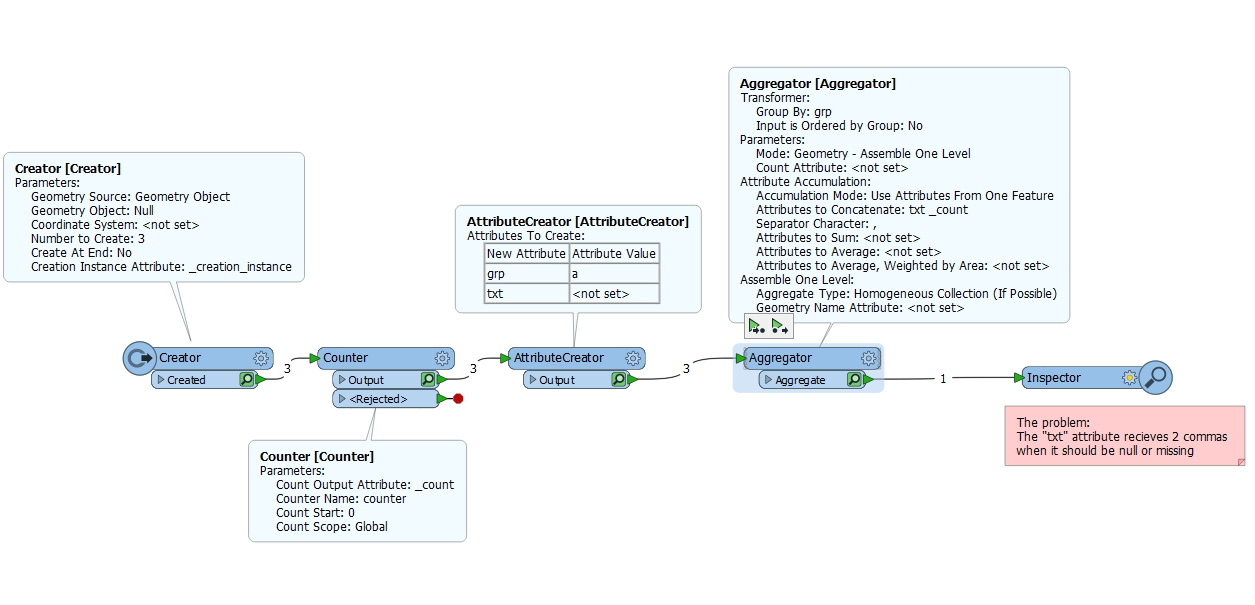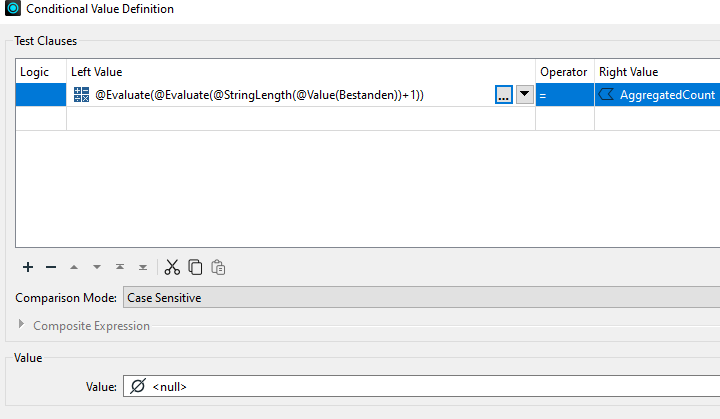I'm using an Aggregator transformer to group by an attribute and concatenate many attribute accordingly. I'm having a problem with the attribute column containing missing or null values. The Aggregator will populate the attribute containing missing or null values with the separator character when it should stay empty or null. Is this a bug? I've replicated the problem in the screenshot below











